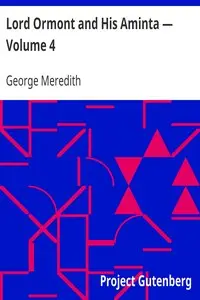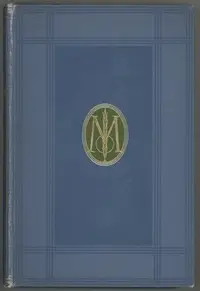"Evan Harrington — Volume 2" by George Meredith is a captivating story focused on themes of social class and self-discovery, tracking Evan Harrington’s journey through a society bound by rigid expectations while dealing with his family's past. The novel starts in the lively Aurora tavern, where the sudden return of an unusual older man causes excitement among the locals. We begin to learn about the various relationships in the town, such as shown in the landlady's soft spot for the returned gentleman. This develops into the friends of Evan Harrington, who debate his goals for the future. This novel explores the ways people connect and the challenges of self-acceptance as Evan grapples with his lineage.

Evan Harrington — Volume 2
By George Meredith
In a world defined by societal barriers, a man struggles to combine his true self with the demands of a society that judges him based on his origins.
Summary
About the AuthorGeorge Meredith was an English novelist and poet of the Victorian era. At first, his focus was poetry, influenced by John Keats among others, but Meredith gradually established a reputation as a novelist. The Ordeal of Richard Feverel (1859) briefly scandalised Victorian literary circles. Of his later novels, the most enduring is The Egoist (1879), though in his lifetime his greatest success was Diana of the Crossways (1885). His novels were innovative in their attention to characters' psychology, and also portrayed social change. His style, in both poetry and prose, was noted for its syntactic complexity; Oscar Wilde likened it to "chaos illumined by brilliant flashes of lightning". Meredith was an encourager of other novelists, as well as an influence on them; among those to benefit were Robert Louis Stevenson and George Gissing. Meredith was nominated for the Nobel Prize in Literature seven times.
George Meredith was an English novelist and poet of the Victorian era. At first, his focus was poetry, influenced by John Keats among others, but Meredith gradually established a reputation as a novelist. The Ordeal of Richard Feverel (1859) briefly scandalised Victorian literary circles. Of his later novels, the most enduring is The Egoist (1879), though in his lifetime his greatest success was Diana of the Crossways (1885). His novels were innovative in their attention to characters' psychology, and also portrayed social change. His style, in both poetry and prose, was noted for its syntactic complexity; Oscar Wilde likened it to "chaos illumined by brilliant flashes of lightning". Meredith was an encourager of other novelists, as well as an influence on them; among those to benefit were Robert Louis Stevenson and George Gissing. Meredith was nominated for the Nobel Prize in Literature seven times.













